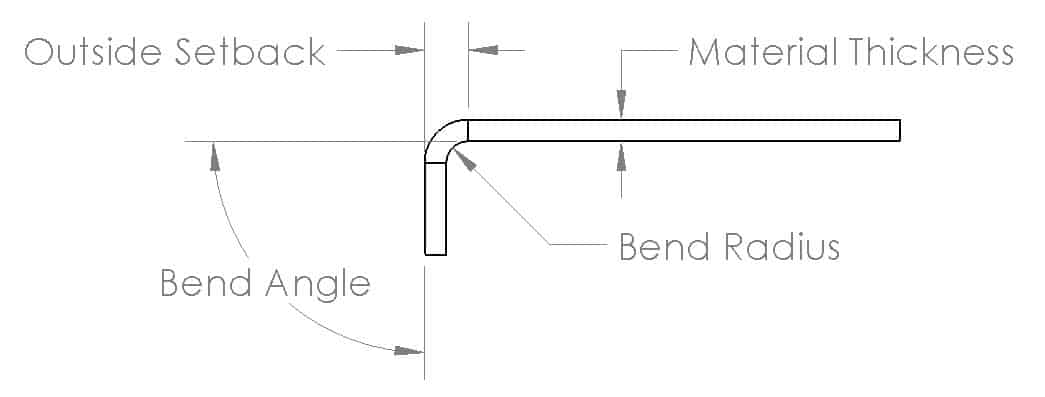The most common problem with bending a piece of sheet metal too tightly is.
2mm sheet metal bend radius.
If the bending radius is too small the bending will be cracked and if the bending radius is too large the bending is easy to rebound.
It is possible to choose other bends if you require but additional lead time and tooling charges may apply.
The problem with bending too tightly.
In steel between 0 5 and 0 8 in.
You will need to know your material thickness mt the bend angle b the inside radius ir and the k factor k.
The required die width is 12 mm and tonnage per meter is 22.
The bend allowance formula takes into account the geometries of bending and the properties of your metal to determine the bend allowance.
It s true that the harder and thicker the plate is the greater the minimum bend radius.
Let s say i have a 2 mm thick sheet and i want to bend it.
It is most economical to use a single bend radius throughout the design but if necessary you can utilize multiple radii.
For most applications with stainless steel or aluminum you can get away with a zero radius bend on anything under 0 050 thick.
Bend radii minimum bend sizes.
I can now see that the minimum flange length is 8 5 mm for such a bend so i have to keep it in mind when designing.
To keep it simple i also use a 2 mm inside radius.
Discover all our calculation tools in the calculators section of the top menu.
Each and every bend in a piece of sheet metal has a certain minimum internal radius that needs to be taken into account when planning the design of a sheet metal form.
The gauge inside radius die opening and minimum flange length are all interconnected through different equations and relationships the air bend force.
Thick grade 350 and 400 may have a minimum bend radius of 2 5 times the material thickness when transverse bending while longitudinal bending may.
This tool allows you to determine tonnage internal radius v die opening and minimum flange you just have to insert the characteristics of the sheet metal to be bent.
An air bend force chart or force chart breaks down a number of key components of sheet metal bending in an easy to reference format.
We go beyond the general rules of sheet metal bending as our customers want tight bend radii for sheet metal parts.
The bending radius should not be too large or too small and should be chosen appropriately.
Being able to read a bend force chart is crucial for any brake press operator and sheet metal engineer.
The material thickness will be measured in decimal form not by the gauge number.
In other words if you re bending 1 8 sheet use a tool with a 1 8 radius to form the inside of the bend.
When the sheet metal is bent a bend radius is required at the bend.
If a piece of material is bent too tightly problems can occur.
The tables below show bend radii and minimum bend sizes for materials and tooling combinations stocked by protocase.
The minimum inside bend radius is even larger when bending with the grain.

